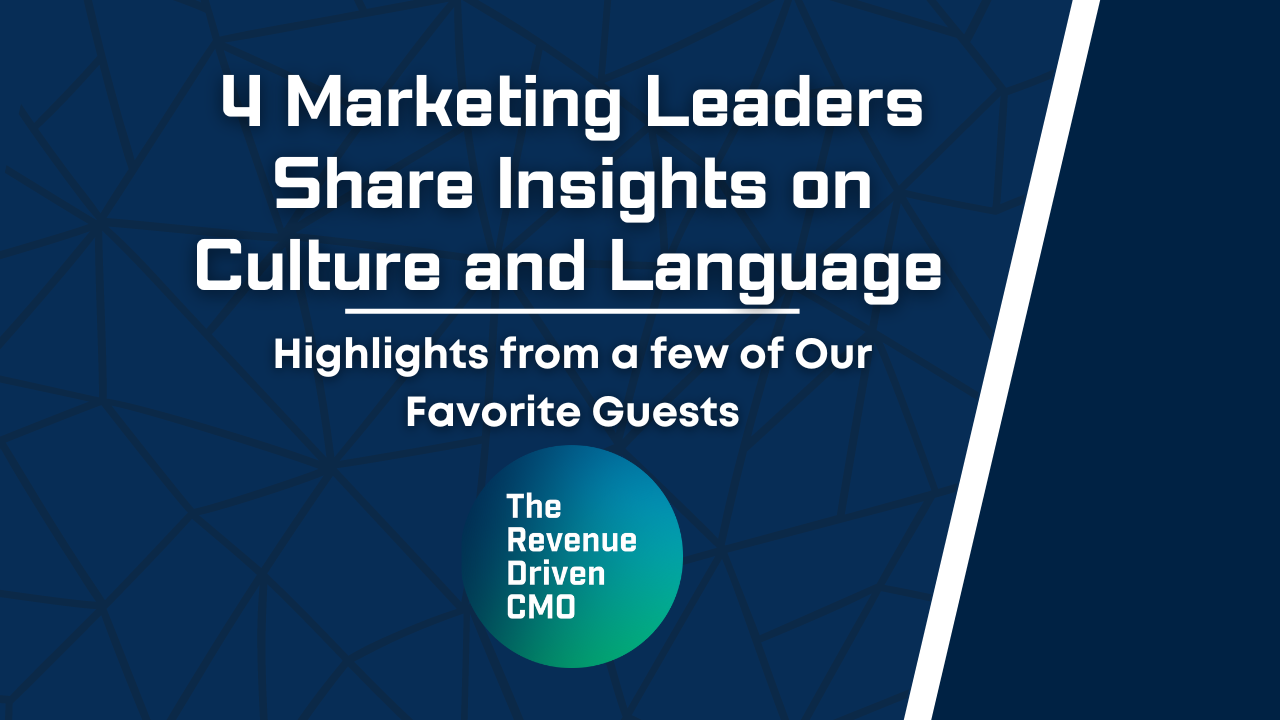Every marketer has heard how vital differentiation is to success, but today’s guest has a different point of view and the data to back it up.
Bryan Law, the Chief Marketing Officer of ZoomInfo, joins this episode to provide his marketing expertise which he has built over two decades of leading marketing teams at companies like Salesforce, Google, Tableau, and Deloitte.
Bryan explains why being distinct is more important than being differentiated, why your brand’s messaging should be the same across segments, and how to discover the category entry points for your brand.
Book a 30 minute call
Reserve 30 minutes with a strategist and get 30 hours worth of value.
Takeaways:
- For marketers, it’s much more important to be distinctive than differentiated. Being distinctive means your company stands out from the noise and is noticed. Differentiation conveys how your company and services differ from a competitor’s offering.
- B2B buyers are bombarded with messaging and don’t have time to compare competitors. Most buyers start with a list of one potential vendor and most buyers don’t look beyond that list. To get on that list, your company needs to be distinct.
- Data from the Ehrenberg-Bass Institute shows that brands succeed better when they focus on standing out and getting noticed than when they focus on conveying why they are better than competitors.
- There are many ways for your company to be distinctive, but the most important aspect is to think about what the company needs to be known for and then deliver that consistently. For example, if your brand uses humor to stand out, your brand needs to deliver on that consistently across every interaction a prospect has with your brand.
- Examples of assets your brand should keep consistent include colors, logos, taglines, symbols, sounds, characters, etc. In addition to tone and storytelling, these small, consistent nuances help your messaging feel familiar, yet distinct, to buyers.
- Hyper-personalized messaging actually degrades the strength of your brand. The more consistent your messaging is for every segment, the stronger your brand becomes. Hone your targeting by industry and deliver consistent messaging to every type of buyer.
- Identify the category entry points for your buyers. These are the thoughts and feelings they have during buying situations. Then, attach your brand to those entry points that are associated with purchasing. For example, a prospect thinks about how to fix X, and in doing so, they simultaneously think of your brand.
- The first step to becoming more distinct is learning the thoughts, feelings, and emotions that buyers have when purchasing. Use a survey to ask them, “When you are thinking about this category, what are the thoughts, feelings, and emotions that come to mind?”
Quote of the Show:
- “It’s really about thinking about what you want to be known for, and then doing it consistently.” – Bryan Law
Links:
- LinkedIn: https://www.linkedin.com/in/bryanbasdenlaw/
- Twitter: https://twitter.com/BryanBasdenLaw
- Company website: https://www.zoominfo.com/
Shout Outs:
- Ehrenberg-Bass Institute: https://www.marketingscience.info/
- Building Distinctive Brand Assets by Jenni Romaniuk
- ZoomInfo Plays: https://www.zoominfo.com/plays
- How Brands Grow by Byron Sharp
- Don’t Make Me Think by Steve Krug
- Long Walk to Freedom by Nelson Mandela
Ways to Tune In:
- Amazon Music:https://music.amazon.com/podcasts/5f9c8c1a-fbf5-43c7-b7eb-958674860156/3-minute-marketing-with-chris-mechanic
- Apple Podcast:https://podcasts.apple.com/us/podcast/3-minute-marketing-with-chris-mechanic/id1444680950
- Spotify:https://open.spotify.com/show/1OCuYchAG8TlGv82YARRhy?si=c4050290cbb54c65
- Google Podcast:https://podcasts.google.com/feed/aHR0cHM6Ly9tb3JlbWFya2V0aW5nLmxpYnN5bi5jb20vcnNz
- Listen Notes:https://www.listennotes.com/podcasts/3-minute-marketing-with-chris-mechanic-rdU1oESluqs/
- YouTube:https://youtu.be/1i8Be-JDAHE
Featuring:

Bryan LawCMO, ZoomInfo

Chris MechanicCEO & Co-Founder
Podcasts Info:
Categories:
Creative + UXMarketing
Most newsletters suck...
So while we technically have to call this a daily newsletter so people know what it is, it's anything but.
You won't find any 'industry standards' or 'guru best practices' here - only the real stuff that actually moves the needle.






